1st Compliance: Advanced AML Compliance Software for Businesses
The requirements
Regulators mandate that legal entities implement an AML system or Compliance Management System (CMS) to ensure effective compliance monitoring and the detection of financial crimes. These systems must include automated KYC screening, ongoing monitoring, and dynamic risk assessment to protect clients and their operations while maintaining regulatory compliance. To achieve this, businesses need to leverage advanced Anti-Money Laundering (AML) and Countering the Financing of Terrorism (CFT) compliance software. This blog explores the vital role that AML compliance software solutions play in safeguarding businesses and ensuring regulatory adherence.

Understanding the Importance of AML/CFT Compliance Software
The importance of an AML-CFT (Anti-Money Laundering and Countering the Financing of Terrorism) compliance system in the UAE is crucial due to the country’s role as a global financial hub and its commitment to combating financial crime. Here are the key reasons why an AML-CFT compliance system is essential in the UAE:
1. Regulatory Compliance
The UAE has established stringent regulations to combat money laundering and terrorism financing, such as the UAE Federal Law No. 20 of 2018 on Anti-Money Laundering (AML) and Combating the Financing of Terrorism (CFT). Entities operating in the UAE must comply with these regulations, and an AML-CFT system ensures adherence to these legal requirements.
2. Avoiding Penalties and Sanctions
Non-compliance with AML-CFT regulations can lead to severe penalties, fines, and sanctions, which may include the suspension or revocation of licenses. Implementing an AML-CFT system helps businesses avoid legal and financial consequences.
3. Enhancing Reputation and Trust
Having a robust AML-CFT compliance system in place builds trust with clients, investors, and stakeholders by demonstrating a commitment to preventing financial crime. This also enhances the reputation of the business both locally and internationally.
4. Safeguarding the Economy
By preventing money laundering and terrorist financing, AML-CFT systems protect the integrity of the UAE’s financial sector. This is crucial for maintaining economic stability and attracting international investments, which are vital for the UAE’s growth.
5. Mitigating Risks
AML-CFT compliance systems help in the identification and mitigation of risks associated with financial crime. They provide mechanisms for ongoing monitoring, customer due diligence (CDD), and suspicious transaction reporting (STR), which are vital for reducing the chances of the business being used as a channel for illicit activities.
6. International Standards Alignment
The UAE is a member of the Financial Action Task Force (FATF) and is committed to following international best practices in AML and CFT. Having a compliance system aligned with these standards ensures that businesses operating in the UAE are globally compliant.
7. Facilitating Cross-Border Operations
As a global financial center, many UAE businesses engage in cross-border transactions. AML-CFT compliance systems enable businesses to conduct due diligence on international partners and transactions, ensuring that they meet international AML-CFT requirements, thereby reducing the risk of illicit financial flows.
8. Protecting Business Integrity
A well-implemented AML-CFT system safeguards the business from being inadvertently involved in money laundering or terrorism financing, which can harm the business’s integrity and lead to long-term damage.
Benefits of Implementing 1ST Compliance AML Compliance Software
Implementing 1st Compliance AML (Anti-Money Laundering) Compliance Software offers several key benefits that enhance a company’s ability to comply with regulatory requirements and manage financial crime risks effectively. Here are the primary advantages:
1. Automated Compliance Processes
1st Compliance software automates essential compliance tasks such as Know Your Customer (KYC) checks, transaction monitoring, and reporting. This reduces manual effort and ensures accuracy in detecting and preventing suspicious activities.
2. Real-Time Monitoring
The software provides real-time monitoring of transactions, enabling businesses to identify and report unusual patterns or suspicious activities immediately. This enhances the ability to prevent money laundering and terrorism financing in a timely manner.
3. Risk Assessment and Management
1st Compliance software offers dynamic risk assessment tools that automatically adjust a customer’s risk profile based on ongoing activities. This allows for more precise risk management and targeted compliance efforts, helping businesses focus on high-risk areas.
4. Streamlined KYC/Customer Due Diligence (CDD)
The software streamlines the KYC and CDD processes by automatically verifying customer information and conducting background checks against global sanctions lists, politically exposed persons (PEP) databases, and adverse media sources. This helps businesses onboard clients faster while ensuring regulatory compliance.
5. Compliance with UAE Regulatory Standards
The 1st Compliance AML software is specifically designed to meet the UAE’s stringent regulatory requirements, ensuring that businesses operating in the UAE are fully compliant with local AML/CFT laws and guidelines, such as UAE Federal Law No. 20 of 2018.
6. Reduced Risk of Penalties
By ensuring comprehensive compliance with AML and CFT regulations, the software minimizes the risk of facing regulatory fines, penalties, or reputational damage associated with non-compliance.
7. Comprehensive Reporting and Audit Trail
The software generates comprehensive reports and maintains detailed audit trails for all compliance activities. This makes it easier for businesses to demonstrate their compliance efforts to regulators during audits and inspections, thereby reducing regulatory risks.
8. Enhanced Data Security
1st Compliance software provides high-level data encryption and security measures, ensuring that sensitive customer data and compliance records are protected from cyber threats or breaches.
9. Customizable to Business Needs
The software can be tailored to meet the specific compliance needs of different industries and businesses. It offers flexibility to adjust workflows, risk thresholds, and alert systems based on the business’s unique risk environment and regulatory requirements.
10. Improved Operational Efficiency
By automating key compliance functions, the software frees up time and resources for businesses to focus on core activities. This leads to improved operational efficiency, allowing companies to manage larger volumes of transactions without compromising compliance quality.
11. Global Compliance Alignment
1st Compliance software ensures that businesses not only comply with local UAE regulations but also align with international AML/CFT standards set by bodies such as the Financial Action Task Force (FATF), helping businesses operate on a global scale.
12. Scalability
As businesses grow, the 1st Compliance software can scale to handle larger volumes of transactions and clients without sacrificing performance, making it suitable for businesses of all sizes, from small firms to large multinational corporations.
13. Enhanced Reputation
Implementing robust AML/CFT compliance software demonstrates a business’s commitment to financial integrity, enhancing its reputation with regulators, clients, and investors. This leads to increased trust and long-term business relationships.
14. Cost-Effective Compliance
While manual compliance can be time-consuming and resource-intensive, 1st Compliance software offers a cost-effective solution that reduces the need for extensive compliance staff and lowers the overall cost of maintaining regulatory compliance.
Conclusion
1st Compliance AML software provides businesses with a comprehensive, automated solution to meet their regulatory obligations, manage financial crime risks, and improve operational efficiency. This ultimately enhances compliance, reduces costs, and strengthens the company’s reputation in the market.


